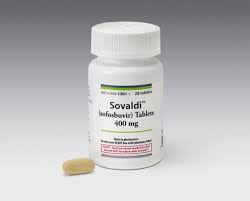Solvaldi costs $84,000 per course of treatment in the United States, but only $900 in Brazil. Why?
Philadelphia Transit Agency Accuses Biotech of Price-Gouging by Charging $1,000-a-Pill Sovaldi
Septa’s suit against Gilead is the latest salvo in a battle between health-care payers and the pharmaceutical industry over drug prices.
By PETER LOFTUS
Philadelphia’s transit agency has sued Gilead Sciences Inc., accusing the company of “price-gouging” on the sale of its $1,000-per-pill hepatitis C drug Sovaldi, the latest salvo in a battle between health-care payers and the pharmaceutical industry over prices.
The Southeastern Pennsylvania Transportation Authority, or Septa, filed the lawsuit on Tuesday in U.S. District Court for the Eastern District of Pennsylvania. The suit seeks class-action status, subject to certification by a judge, on behalf of any person or entity in the U.S. who has paid ”excessive” prices for Sovaldi, or was unable to obtain the drug.
The lawsuit seeks monetary damages from Gilead.
RELATED
- Gilead’s Hepatitis Drug Sees Sales Slow(Oct. 28)
- Gilead Gets U.S. Approval to Sell New Hepatitis C Drug(Oct. 10)
- Gilead to Allow Cheaper Hepatitis C Drug in Developing Countries(Sept. 15)
According to the lawsuit, Septa, which operates trains, buses and subways in the Philadelphia region, has spent at least $2.4 million on Sovaldi this year for members of the health plans it funds for employees and retirees. Septa didn’t say how many plan members have received Sovaldi to treat liver-damaging hepatitis C infections.
A Gilead spokeswoman said Wednesday that the company declined to comment.
Previously, Gilead has said the price for Sovaldi, which averages about $84,000 per patient for a standard course of treatment, was justified by the drug’s ability to cure a high rate of hepatitis C patients, which can prevent more costly health care services down the line, such as liver transplants.
Nicholas E. Chimicles, an attorney representing Septa in the lawsuit, said the price of Sovaldi is “bleeding health and welfare plans around the country.”
The lawsuit follows renewed debate about drug prices, fueled not only by Sovaldi but also by other expensive treatments, such as new cancer medicines from Merck & Co. and Bristol-Myers Squibb Co. The industry argues that the drugs represent medical advances, and that companies need to recoup their investments in expensive research and development, but critics say the prices are straining health-care budgets and impeding patient access to new drugs.
An estimated three million to five million Americans have chronic hepatitis C infection. The virus is transmitted via contact with the blood of an infected patient, including sharing needles.
Since it hit the market in December 2013, Sovaldi has had the best prescription drug launch in history, generating $8.55 billion in sales for the first nine months of this year. In October, U.S. regulators cleared Gilead to sell a new drug, Harvoni, which combines Sovaldi with another drug in a single pill taken once daily and costs about $94,500 for the typical patient treated for 12 weeks.
Administrators of state Medicaid programs and prison systems have expressed concern that the price of Sovaldi is straining their budgets and forcing them to limit the drug’s use among Medicaid recipients and inmates.
In July, the U.S. Senate Finance Committee launched an investigation of Gilead’s pricing of Sovaldi, sending a letter to the company asking for a wide range of documents on how Gilead set the pricing. Gilead said it is cooperating with the Senate committee.
The Septa lawsuit accuses Gilead of discriminatory pricing for Sovaldi because some customers have received discounts and others haven’t. Gilead has taken steps to provide the drug at steep discounts in developing countries, including providing licenses to India-based generic manufacturers to sell lower-cost copies.
“While rolling out its self-congratulatory marketing campaign about how the company is making this lifesaving drug available in third-world countries, Gilead has been simultaneously gouging its U.S.-based consumers and third-party payers of the drug,” the Septa lawsuit says.
Write to Peter Loftus at peter.loftus@wsj.com


